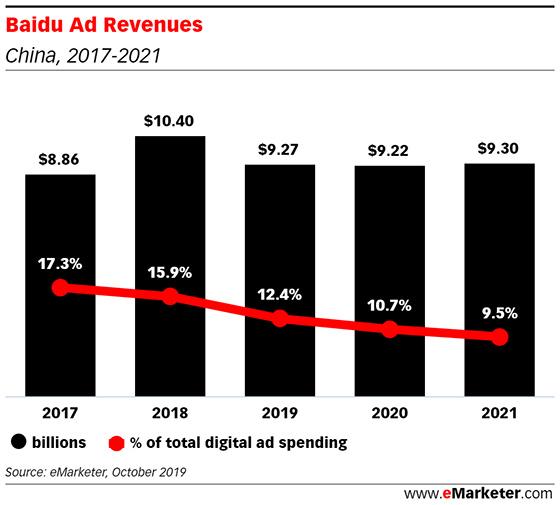Baidu Challenged With Indexing Mobile Content
- by Laurie Sullivan @lauriesullivan, November 7, 2019
Regardless of Baidu’s dominant search position in China, the company’s CEO acknowledges that the engine struggles with indexing mobile content.
“On the mobile side, as many of you know, a lot of the large mobile apps are very much a closed ecosystem,” Robin Li, co-founder, chairman and CEO, told investors during an earnings call Wednesday. “It's not easy for us to index every piece of content as we did during the PC era.”
Li called the challenges “opportunities,” and explained how the company is attempting to build its own mobile ecosystem so it can more easily index content and services to serve up in search engine query results.
“Once we can build a healthy and a strong mobile ecosystem, the user experience will be more indigenous, meaning that they get better experience, and our customers expect better conversion,” he said, acknowledging that the company is making that transition. “That's why you see that traffic, probably, a leading indicator that is growing, but the revenue side or the monetization side has not picked up that significantly.”
eMarketer estimates that Baidu will continue to experience a decline in the percentage of digital ad revenue for the year for PC and mobile. In 2019, the analyst firm estimated that Baidu will take $9.27 billion on 12.4% share, dropping to 10.7% on $9.22 billion in 2020, and 9.5% on 9.30 billion in 2021.
Baidu reported on Wednesday a loss in the third quarter of 2019 of nearly 6.4 billion yuan, or $892 million. Revenue for the quarter grew 3% to 28.1 billion yuan.
Baidu is attempting to strengthen its mobile services with hosted solutions through in-app services and artificial intelligence technology. The number of Baidu App daily active users reached 189 million in September, up 25% year-over-year.
In-app search queries grew more than 25% in the third quarter of 2019 YoY.
Video apps continue to drive growth for search in the engine and in the app, according to Dou Shen, SVP of mobile ecosystem Group at Baidu.
User behavior is changing, according to Li, who at times seemed to blame consumers and technology for the company’s struggles when asked to comment on the competition.
“I think the technology barrier to search is very high,” he said. “If you can solve the search problem, you basically solve the AGI problem, artificial general intelligence, because whatever the users say, you have to be able to understand that and can come up with relevant results, which requires a lot of research, a lot of investment, and it's a very hard problem.”




